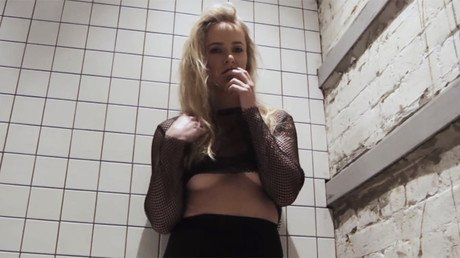Google admits it let random strangers download your videos… as it seeks monthly fee for rifling through your photos
Google has admitted some users’ private videos were sent to “unrelated users” who downloaded data through its Takeout service for a few days in November – but wants you to pay the company to dig through your photos itself.
The search behemoth has quietly notified users of its Google Takeout service, which downloads a user’s Google Data archive, that an unspecified number of their private videos ended up in random users’ Takeout archives. The emails, sent a mere three months after the fact, are ominously vague, merely letting the user know that “one or more videos in your Google Photos account was affected” by the bug between November 21 and 25 of last year. Nowhere are users told which videos, or in whose hands they ended up – a fact that will no doubt keep some users awake at night. The company did say that still photos were not affected in a statement to 9to5Google on Monday.
Also on rt.com Terrifying or nothing to fear? Apple admits to scanning user photos, presumably only to hunt child abuseGoogle concluded its ‘mea culpa’ missive with the advice to “perform another export of your content and delete your prior export at this time” – you know, in case you have private videos from another “unrelated user” lurking in your archive. The megacorporation’s promise that “we fixed the underlying issue and have conducted an in-depth analysis to help prevent this from ever happening again” is cold comfort to users who still don’t know exactly which of their videos were leaked, and Google’s claim that “less than .01 percent of Photos users attempting takeouts were affected” is only likely to irritate anyone who receives the email – clearly, they were affected, and don’t need to be reminded of how unlucky they were. Knowledge that Google is depending on the honor system to ensure “unrelated users” delete the videos they didn’t ask to download is especially unlikely to reassure anyone receiving the message.
For some unfathomable reason, Google dropped this bombshell just a few days after launching a subscription-based service in which the user pays $7.99 per month to have the company pick their “best” 10 photos from the previous month and print them out on paper. Which photos are selected is largely left up to the software, but categories like people and pets, landscapes, and “a little bit of everything” give the user the illusion of choice.
Also on rt.com Big Tech joins up with Big Brother to turn your private health data into $38bn ‘public treasure’It’s never spelled out why Google users should trust the company to evaluate their private photos for posterity, given that the company has only just admitted it can’t keep their private videos private, let alone notify them in a timely fashion when there’s been a breach. Press coverage of the new Google Photos subscription feature doesn’t bother to mention whether there’s an option to make certain photos off-limits to the software, in case a user is concerned about, say, their nude shots ending up in a photo album of “people and pets” destined for Grandma. Users can “edit the photos before they’re printed,”according to 9to5Google, but a user who believes he doesn’t have time to select 10 photos himself is unlikely to take the time to vet those 10 photos for decency let alone taste. What Google thinks is your “best” photo is not likely to match your own opinion of your “best” photo.
Google users must ask themselves if the “privilege” of having Google potentially train its AI on their memories is really worth $7.99 every month – let alone if it’s worth the risk of embarrassing themselves when the photos they send to be printed inevitably end up including a racy shot or two. Leaving aside the embarrassment potential of the wrong photo ending up in the wrong hands, there’s the surveillance state applications of such a “feature” – an ever-present factor with Google, whose appetite for data is equaled only by its willingness to share the data for the right price. No less than Amnesty International has slammed Google’s “surveillance-based business model” for weaponizing personal data and making submission to the digital Panopticon a prerequisite for accessing services as basic as searching the internet. Google already has eyes and ears in many users’ homes in the form of its Nest smart-home system, complete with a camera that can’t be turned off, but there’s no such thing as too much data.
Also on rt.com Show me your face: Google Nest Hub surveillance system lets you bring Big Brother home with youSubscribe to RT newsletter to get stories the mainstream media won’t tell you.














